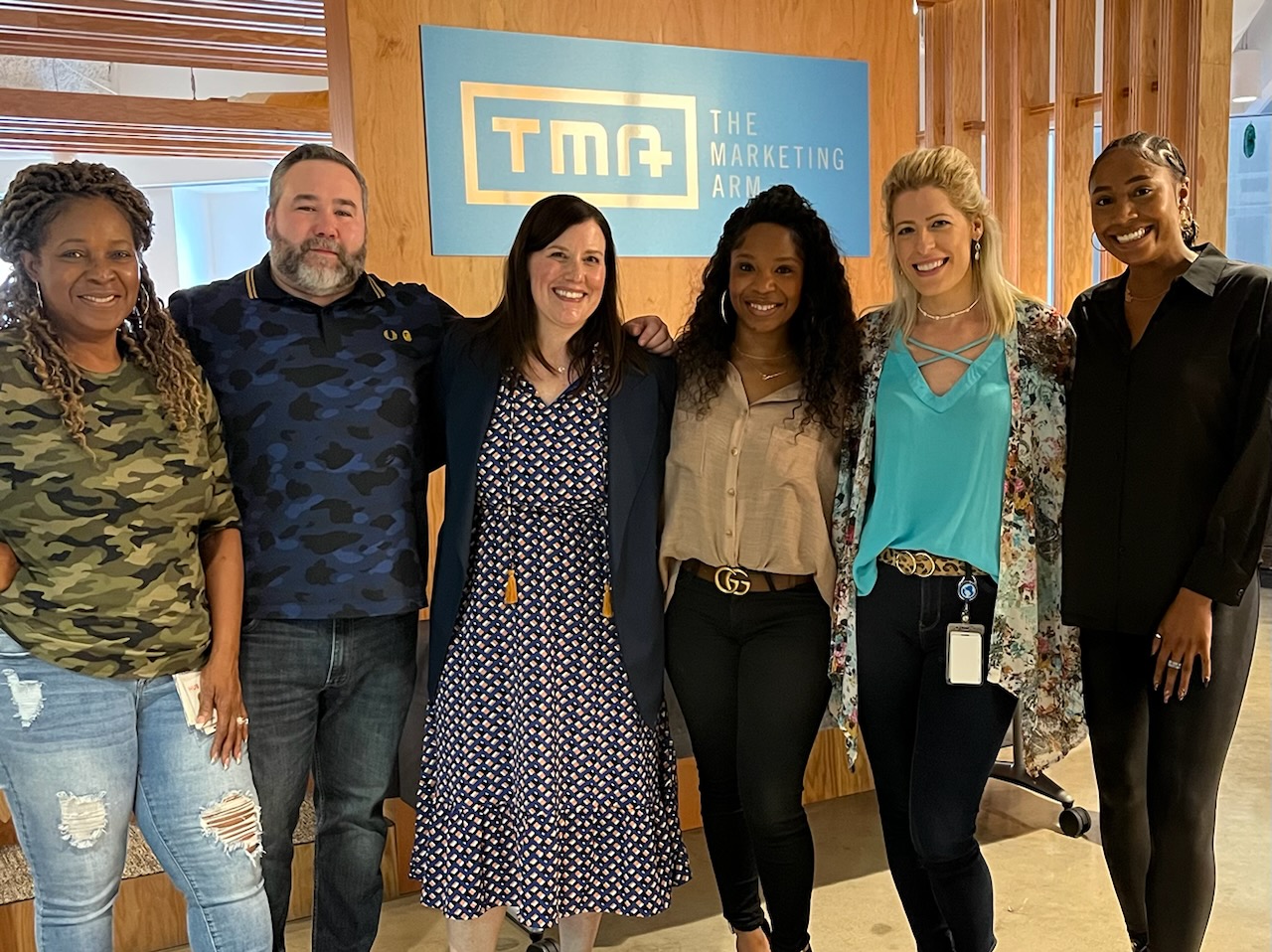5 Ways the Pandemic Strengthened Our Culture

By Sarah Molloy and Jean Scheidnes
The conventional wisdom about companies that transitioned to mostly remote work is that productivity is up, but culture has taken a big hit. Any threat to culture is one we take very seriously at TMA, because we are passionate about ours. Culture is why many of us come to TMA – and why we stay. Of course, TMA culture has changed a lot since Covid-19 upended our lives, and we sometimes grapple with nostalgia. Change is hard. But in certain crucial ways, the massive shift to remote work has made our culture better than ever.
Commitment to Workability
Before the pandemic, TMA was already moving toward a new policy giving our people the flexibility to work when and where they work best. The pandemic only sped up the timeline for implementing this permanent policy that we call Workability. Obviously, we have to manage the challenges that come with physically gathering less. But we are committed to this because Workability makes the totality of life’s obligations more manageable, and gives us more time for the people and activities we value most.
Commitment to Wellness, Including Mental Health
One thing that we, like many other companies, have emphasized a lot more during the pandemic is wellness. We created our wellness initiative in summer 2020 upon the big idea that it’s okay to not be okay, even at work. That was the key for us, acknowledging that work and home life are married now, more than ever, and an expectation that people should always separate their personal and professional lives is unreasonable. We’ve written previously about our wellness efforts throughout 2020, and we continued most of these through the current year. We, like many other companies, are looking at what wellness looks like going forward. How are people’s needs changing? Are the measures we are taking actually effective? Employee engagement surveys have been very useful, allowing us to see where people need more support, and what kind.
More Equity Across Locations
Being fully remote has allowed us to break down geographical distinctions that used to create unfair biases and power imbalances. For example, headquarters versus satellite offices. In the room versus on the phone. These distinctions don’t mean much anymore, so we’re collaborating more equitably now.
When virtual events became the norm rather than the exception, it meant we could provide a consistent experience for all attendees, regardless of location. As hybrid events become more common, we are also designing these to benefit as many people, in as many places, as we can. Across the agency, people are connecting more on the basis of shared goals and interests, rather than proximity.
Opportunity to Rethink, Reevaluate & Reinvent
It shouldn’t take a cataclysmic event to bring about reinvention, but so it goes. The pandemic gave us an opportunity to question everything. Is it really necessary to have so many meetings or can we put more of that information in emails? Do we really need people at their desks from 9-5? What didn’t we like about our in-office culture? What do we love about working remotely? What do we never want to do again? It’s equally necessary to challenge assumptions about the so-called new normal. For example, we took a long hard look at the trainings and just-for-fun events we were offering. We want to make sure they are the best use of employees’ time, given how important it is for everyone to have time away from screens.
Sharper Focus on People Initiatives
In addition to wellness, we’ve been able to prioritize our other “people initiatives.” We have three: Discover TMA (focused on raising voices in historically marginalized communities), TMA Women’s Initiative (focused on uplifting women and new parents), and TMA Cares (focused on bettering our communities). These voluntary employee groups have always been important to our culture, but we were able to put more time, money, and resources into making them the best they can be, thanks to other areas of the business where we were investing less.
We’ve spoken a lot internally over the past two years about how we adapt our culture, knowing that from now on we will always have at least some employees working remotely. Creating culture without daily proximity is difficult. We’re not perfect and we don’t have it all figured out. But, as long as we stay grounded in our core values, we are free to experiment, observe, and optimize. We’ll keep trying new things, whether it’s Work From Work Wednesdays or virtual games, and see what sticks. It’s exciting to be able to take our agency in a new direction, maybe even setting us on a better trajectory than we were on before the pandemic.
Sarah Molloy is assistant manager of operations, based in TMA’s Los Angeles hub.
Jean Scheidnes is VP of communications, growth & development, based in Dallas.


